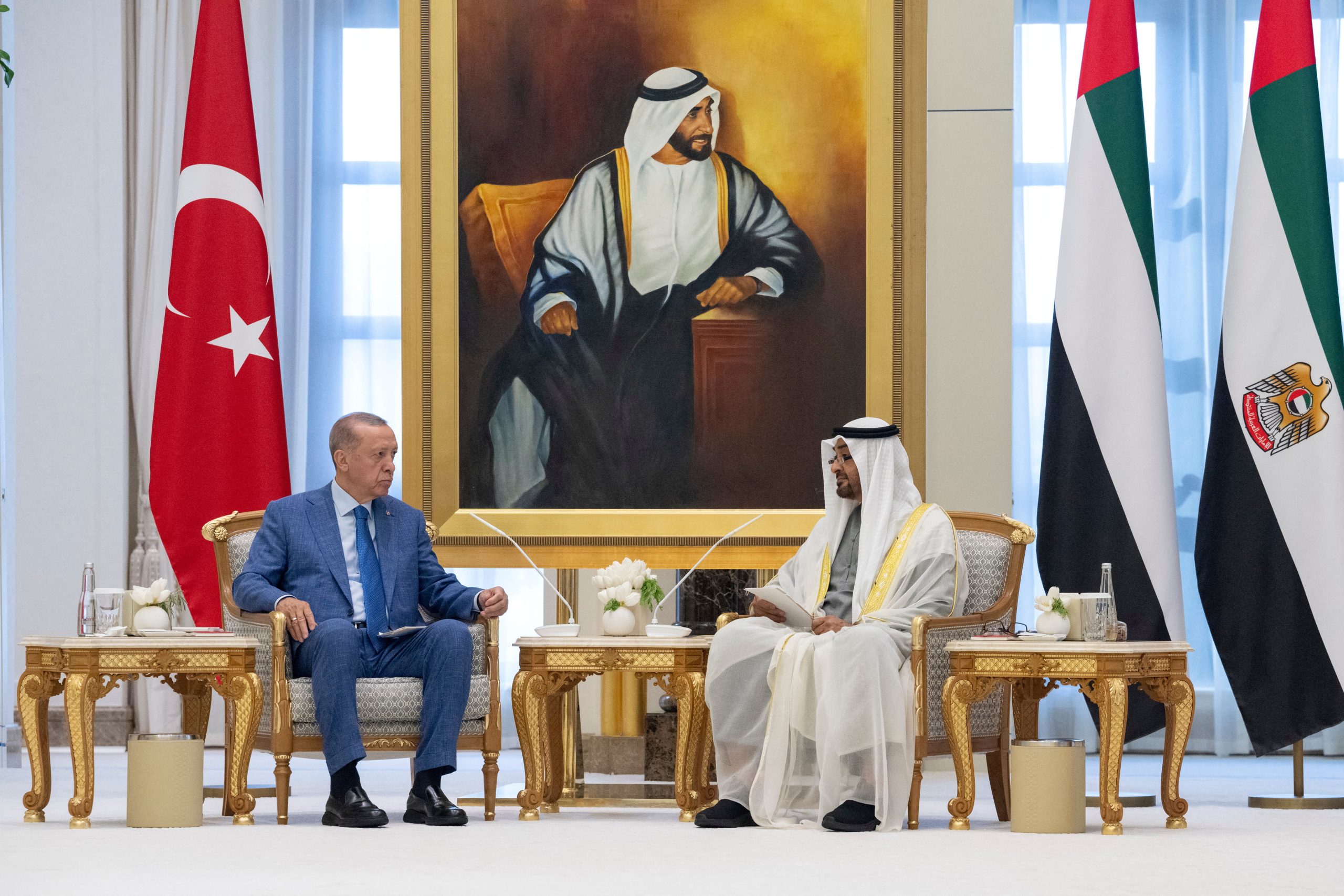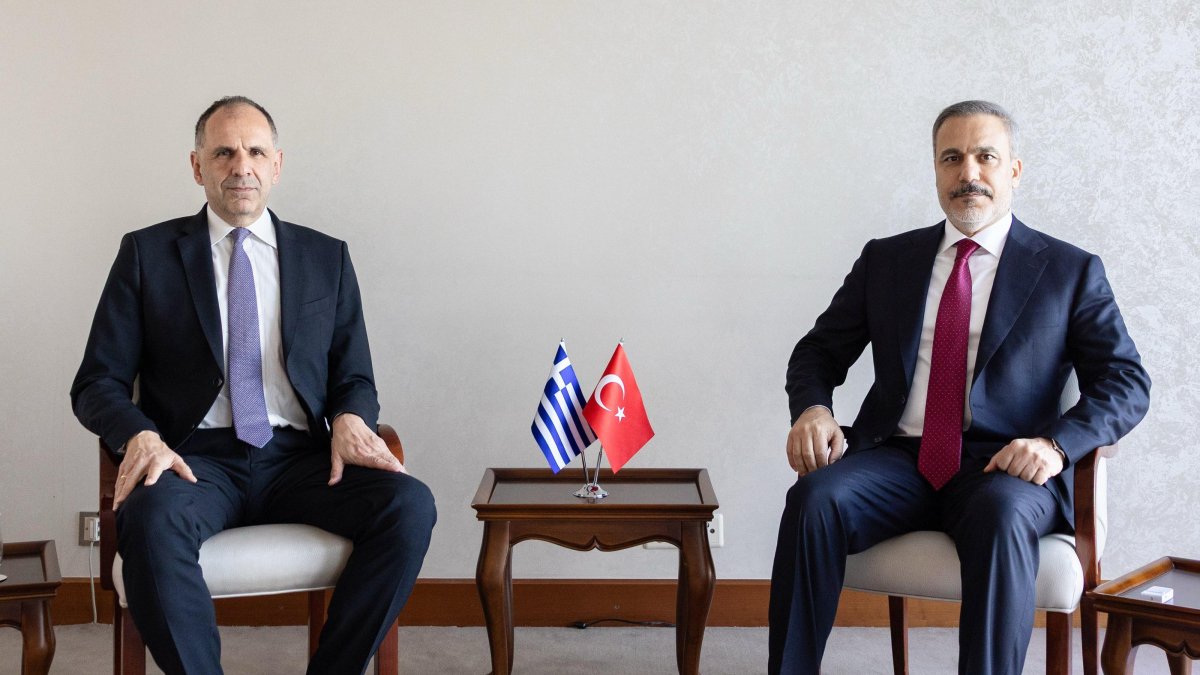Papadopoulos delivers blanket ‘ohi’ to Denktas
"The answer that they [the Greek Cypriots] have given us is that our proposals are all unacceptable, saying they are outside the Annan plan," said Denktas.
The U.N.’s Annan plan has been dusted off as the framework for the talks, which resumed on Feb. 19 at a disused airport in the island’s U.N. buffer zone. Negotiations on the plan, named after U.N. Secretary-General Kofi Annan, are being continued on a very tight schedule agreed upon by the sides at Feb. 10-12 talks in New York chaired by the U.N. chief.
The Turkish Cypriot leader complained that the Greek Cypriot side was still preoccupied with the assumption that they are the government of Cyprus and that the current process on the island was just an exercise to work out how the Turkish Cypriot "minority" would be patched into that state.
The Greek Cypriot side has been acting under a "We are now a member of the European Union, we don’t have time for a transition period" mentality, Denktas complained, adding that a transition period was a must for the harmonization of the Turkish Cypriot side.
Denktas said Greek Cypriot leader Tassos Papadopoulos had also rejected the "provisional derogations" that the Turkish Cypriot wanted to remain in force until Turkey’s EU membership, saying, "It’s not certain when Turkey will join the EU."
He said Papadopoulos has been demanding that in the referendum to be held on April 21 on the completed U.N. settlement plan, only Turkish Cypriots who were citizens of the "Cyprus Republic" on Dec. 23, 1963 — when the Greek Cypriots launched an island-wide extermination campaign against the Turkish Cypriot population of the island — and their descendants would be given the right to vote and that mainland Turks who settled on the island after the 1974 Turkish intervention should not be allowed to vote.
"There are no settlers. There can be no discrimination. All citizens of our state enjoy equal rights," Denktas said.
He complained that while he was asking that Turkish Cypriots discriminate against those who have settled in northern Cyprus over the past 30 years, Papadopoulos objected to all derogations demanded by the Turkish Cypriot side in order to effectively safeguard their "founding equal partner" status of the new partnership state to be created on the island.
"They have rejected each and every change we have suggested on grounds that we were suggesting ethnic discrimination or were against the Annan plan," Denktas complained.
Denktas also said on Monday he sought an expression of support from the European Union for his position, which stresses the dual ethnic make-up of the east Mediterranean island.
"We want the EU to say something to the Greek Cypriots along the lines of them accepting the existence of two ethnic groups, two peoples," he said.
Reiterating his demand for the effective renegotiation of Cyprus’s EU membership and its re-ratification by EU members, Denktas said apart from the need of incorporating the settlement accord in the accession accord signed unilaterally by the Greek Cypriots with the EU, the document included references to the Turkish Cypriot people that describe them as a "minority" that ought to be "corrected."
He said although the Turkish Cypriot side, respecting the request made by the U.N. secretary-general, presented a complete set of the changes they wanted to see in the Annan plan back on Feb. 24, the Greek Cypriot side finally presented a 20-page document yesterday on the changes they wanted to the settlement plan.
"We will continue in good faith to achieve the slightest possible advance," Denktas said adding that he would examine the Greek Cypriot document in detail and then would comment on it.
But he said a quick glance at the document showed that among the demands of the Greek Cypriot side was immediate placement of the territory to be handed over by Turkish Cypriots within the deal under interim U.N. administration. "That means we would not be able to implement any rehabilitation programs and would render our people refugees right from the first day. That’s not possible. That’s wretchedness," said Denktas.
Denktas, appealing to the United Nations to help break the Greek Cypriot intransigence demonstrated in the talks, said: "I hope I’m wrong and that the United Nations is not acting with a ‘Let them talk and continue disagreeing with each other up until the end of the day that we intervene, fill in the blanks and send the document to referenda’ understanding." Denktas said he believed the two sides ought to try and hammer out a settlement themselves rather than leaving the job to Annan.
Under the tight schedule, the two leaders have been given until March 21 to agree on the terms of a deal. Their patrons, Greece and Turkey, will be brought in to help if there is no agreement by then. Annan then has approval to fill in any gaps before calling separate simultaneous referenda on April 21 on both sides of the island.
The Turkish Cypriot side has been complaining ever since the start of the latest round of talks that while failure of the process will exacerbate the isolation of the Turkish Republic of Northern Cyprus and is likely to harm Turkey’s own hopes of starting EU entry talks in early 2005, the Greek Cypriot side will be allowed to join the EU "with or without an accord."
"They don’t have any motivation," a senior aide of President Denktas recently told the TDN, complaining of the "intransigent" attitude of the Papadopoulos administration at the talks.
While two consecutive public opinion polls in southern Cyprus showed that a majority of Greek Cypriots remain opposed to a settlement on the basis of the Annan plan, a poll by Turkish "Yeni Safak" newspaper last week demonstrated that in northern Cyprus at least 58 percent of the population was supportive of the plan.



